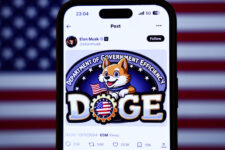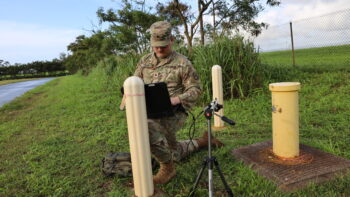 WASHINGTON: The United States is “losing the cyber espionage war” against China, Russia and other countries, but even in the face of such a grave threat the country cannot agree on how to protect its precious intellectual seed capital from these predations, the chairman of the House Intelligence Committee says.
WASHINGTON: The United States is “losing the cyber espionage war” against China, Russia and other countries, but even in the face of such a grave threat the country cannot agree on how to protect its precious intellectual seed capital from these predations, the chairman of the House Intelligence Committee says.
“We are running out of time on this,” Rep. Mike Rogers, respected for working closely with his ranking member, said in a speech at today’s Intelligence and National Security Alliance‘s (INSA) cyber conference here.
China is stealing intellectual property on a massive scale, as Gen. Keith Alexander, head of both the National Security Agency and Cyber Command, has made clear with his estimates of such thefts topping $1 trillion. While China is not alone, U.S government officials have made clear that no country engages in cyber espionage as systematically, as thoroughly or as broadly as does the People’s Republic of China.
“China is investing hugely in this technology,” Rogers notes. And the impact of that investment is felt not only in the economic sphere, important as that is. Cyber is now an integral of military planning and operations, as the Russians have demonstrated several times.
To help stem those thefts and to protect critical infrastructure such as power grids, Rogers and Rep. Dutch Ruppersberger, his Democratic colleague on the HPSCI, met with hundreds of business leaders, civil rights and privacy groups over several months as they began to craft what became their 13-page bill. It would have offered businesses liabliity insurance in return for their agreeing to share threat information with the government. The government also would have shared threat information with the businesses.
But there was a catch. Because of how sensitive sources and methods are in the cyber world, the businesses would have to get top secret clearance for senior officials, build and maintain a Sensitive Compartmented Information Facility (SCIF), and maintain the physical and bureaucratic complex required of anyone dealing with classified information.
As Rogers put it, his committee had offered industry a “carrot and a stick.” But his colleagues in the Senate wanted to chart a different path, so the Rogers-Ruppersberger bill is on life support. I asked him today what he planned to do with his “dead” bill. “All is not lost. I am reaching out to members of the Senate just to see what our options are,” as is Ruppersberger. “We are not giving up.”
While it would be voluntary for businesses to opt into the classified system outlined in the Rogers-Ruppersberger bill, they would have to agree to protect access to classified information and that, as Ruppersberger noted this afternoon, isn’t cheap. So I asked him if this would tend to perpetuate disparities between smaller and larger businesses and raise issues of equity. He said it wouldn’t be a problem because small businesses would depend on large Internet providers. “They will be covered in this way. They already have relationships with big providers,” he said, noting that they have already invested in SCIFS and the other classified infrastructure. But that doesn’t address the issue of people who own or want to start cell phone companies and Internet Service Providers. Anyone doing that will face the high costs of entry into this world. By the way, Rogers described building a SCIF as “outrageously expensive.”
In other news, Rogers said he expected a Congressional inquiry into the death of U.S. Ambassador Christopher Stevens. “There are just so many unanswered questions,” he said. “I think Americans deserve the truth on something like this.” He sent a clear message to the Obama administration, warning against any attempts to withhold information while the State Department launches an investigation by an Accountability Review Board. He joined several other two Republican senators in pressing for information. “While we appreciate the sensitivities associated with this ongoing investigation, we must insist on more timely information regarding the attacks and the events leading up to the attacks,” Sens. Bob Corker and Johnny Isaakson wrote in a letter yesterday to Secretary of State Hillary Clinton.
From Boeing’s struggles to inflation relief funds: 5 industry stories from 2024
Making a year-end list in which she forces references to Taylor Swift songs for no reason has basically become reporter Valerie Insinna’s favorite Christmas tradition.



























